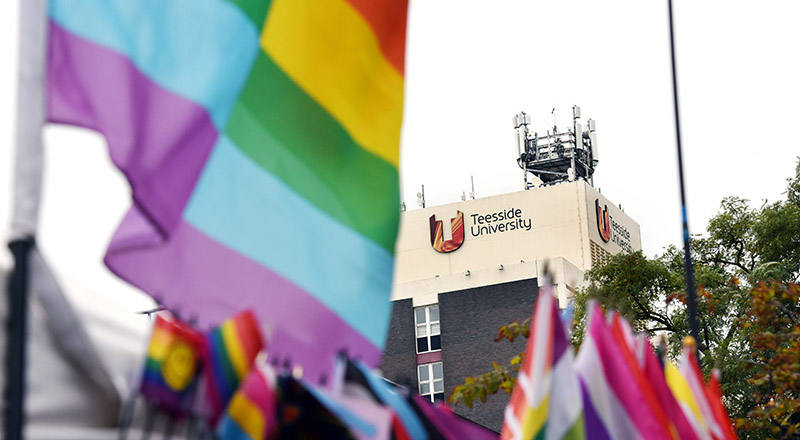Experiences of LGBTQ+ care leavers examined by research team
A Teesside University research team is speaking to members of the LGBTQ+ community about their experiences of leaving the care system.

The study, currently in its early stages, has so far shown that some LGBTQ+ care leavers felt marginalised and that they received little support when leaving the care system to move towards independent living.
Although initial findings do highlight pockets of good practice, the research reveals that among LGBTQ+ care leavers who participated in the study, the majority felt dissatisfied. There were also reports of transphobia, including misgendering and denial of gender identity.
Jack Smith, who is part of the research team, is drawing from his own experiences as a care leaver. He said: “As someone who grew up in the care system and as a member of the LGBTQ+ community, the initial findings are sadly not a surprise.
“Young people in care have no power in terms of their voices being heard. They are dependent on those who are offering the support.”
Dr Claire Brown, senior lecturer in social work in the University’s School of Social Sciences, Humanities & Law, who is leading the research, said: “The initial research findings do paint a bleak picture.
“Poor experiences were found in a variety of areas, from support in dealing with housing, finances and bills, to a lack of support in relation to mental and physical health. There were also reports of transphobia, homophobia and biphobia.”
The findings highlight poor relationships between care leavers and professionals, characterised by high staff turnover, with some care leavers having to continuously reinforce their identity and explain their situation to differing professionals.
Jack said: “There was discrimination and a lack of emotional support felt by some LGBTQ+ care leavers, with a lack of support for their identity. It reinforces the need to preserve the privacy and dignity of the young person.
“Young people in care are not taught about cultural identity. Sadly, it is often the case that your identity is simply that you are in care.”
The initial research findings do paint a bleak picture
Dr Brown added: “The findings also showed inconsistencies in service provision, resulting in vastly different experiences, with support offered not standardised or statutorily mandated.
“There are professionals who deal with care leavers who may not have had experience in working with someone from the LGBTQ+ community. Our findings so far show a need for better training to support anti-discriminatory practice.”
Dr Brown added: “It’s a systemic issue. There is a national shortage of social workers, and more resource is needed to support care leavers.”
The researchers are keen to encourage more professionals who work with care leavers to complete the survey, which has been designed by research team members with lived experience of leaving care. They would also like to speak to more LGBTQ+ care leavers in our region to see how this compares with the national picture, in terms of support and provision.
Dr Brown said: “We are keen to hear from more professional service providers in social work, housing, finance and other roles which might come into contact with care leavers, to gather their input on whether they feel equipped to offer advice and support to care leavers, especially those from the LGBTQ+ community.”
The research team hope their findings can play an important role in helping to shape future policy and good practice guidance.
Professionals working with care leavers can complete an online survey before 16 November 2022. Any LGBTQ+ care leavers wanting to get involved in the research can contact Dr Brown on claire.brown@tees.ac.uk.
 Teesside University academics join prestigious network of
...
Teesside University academics join prestigious network of
...